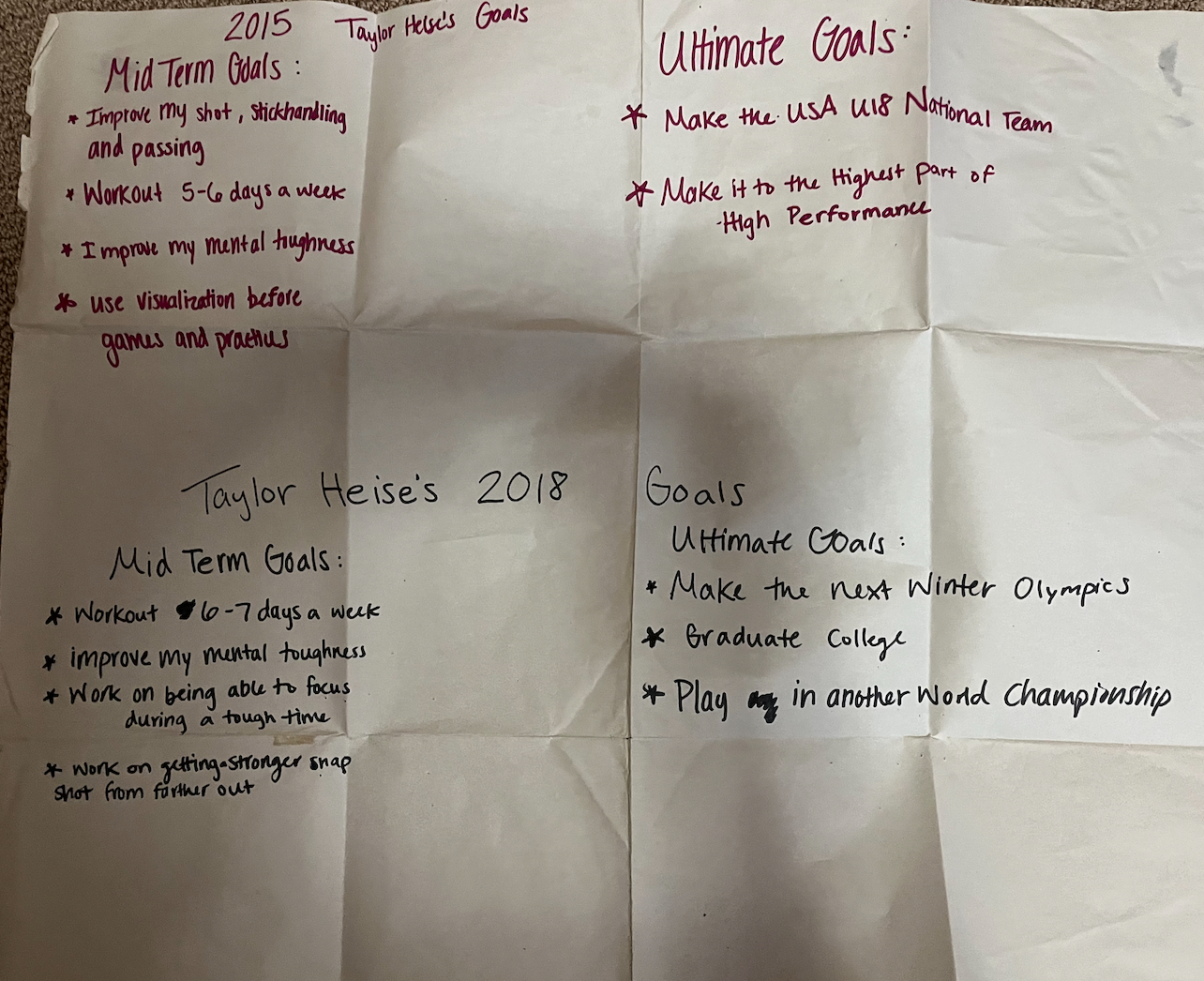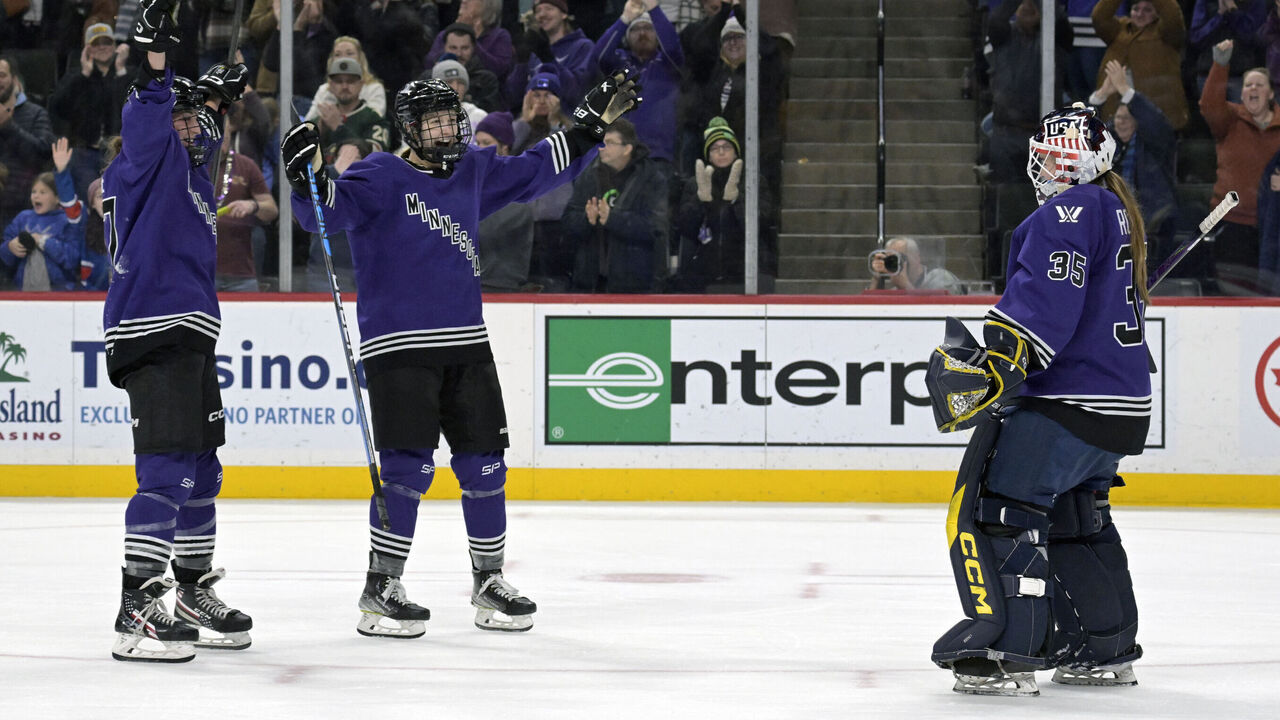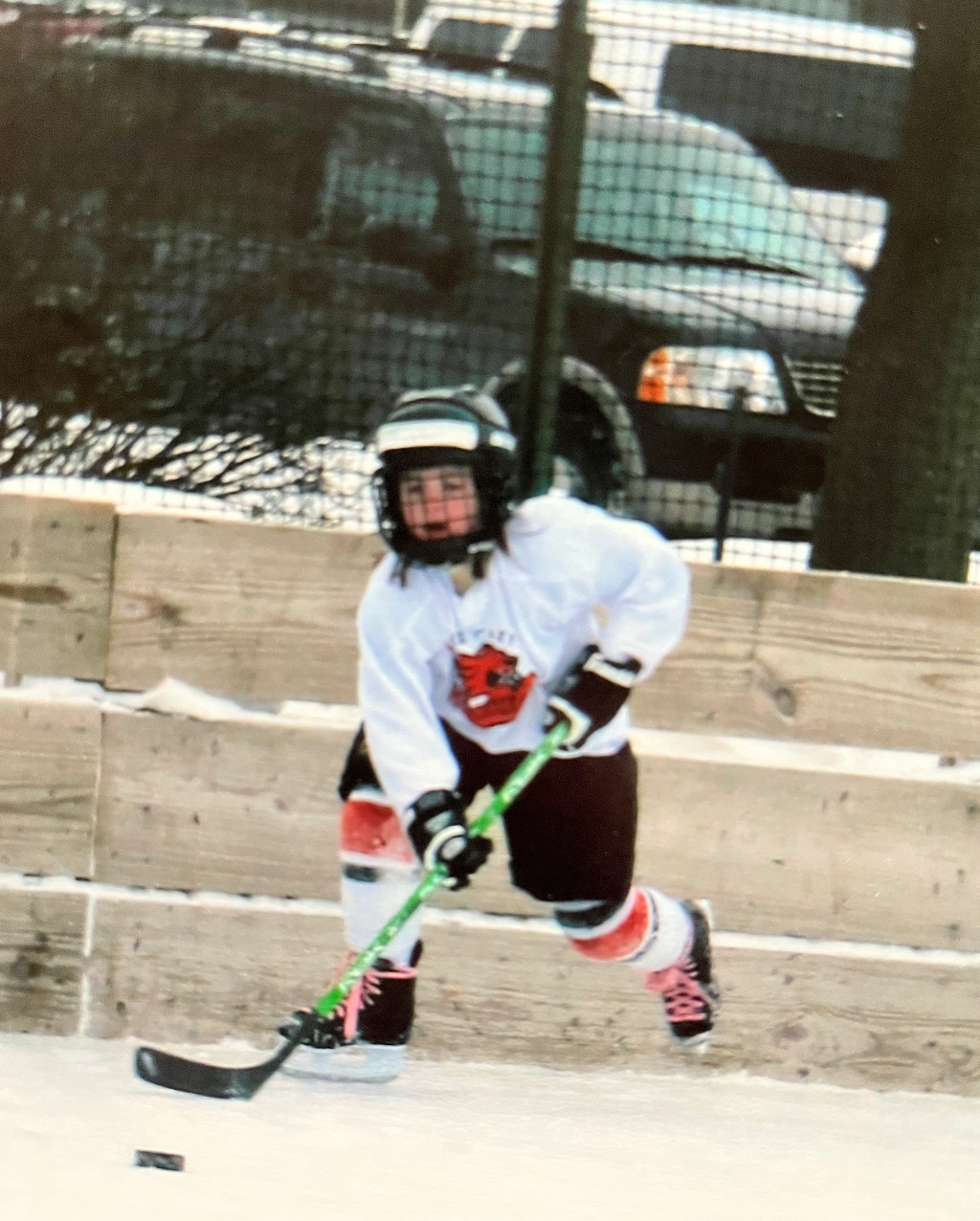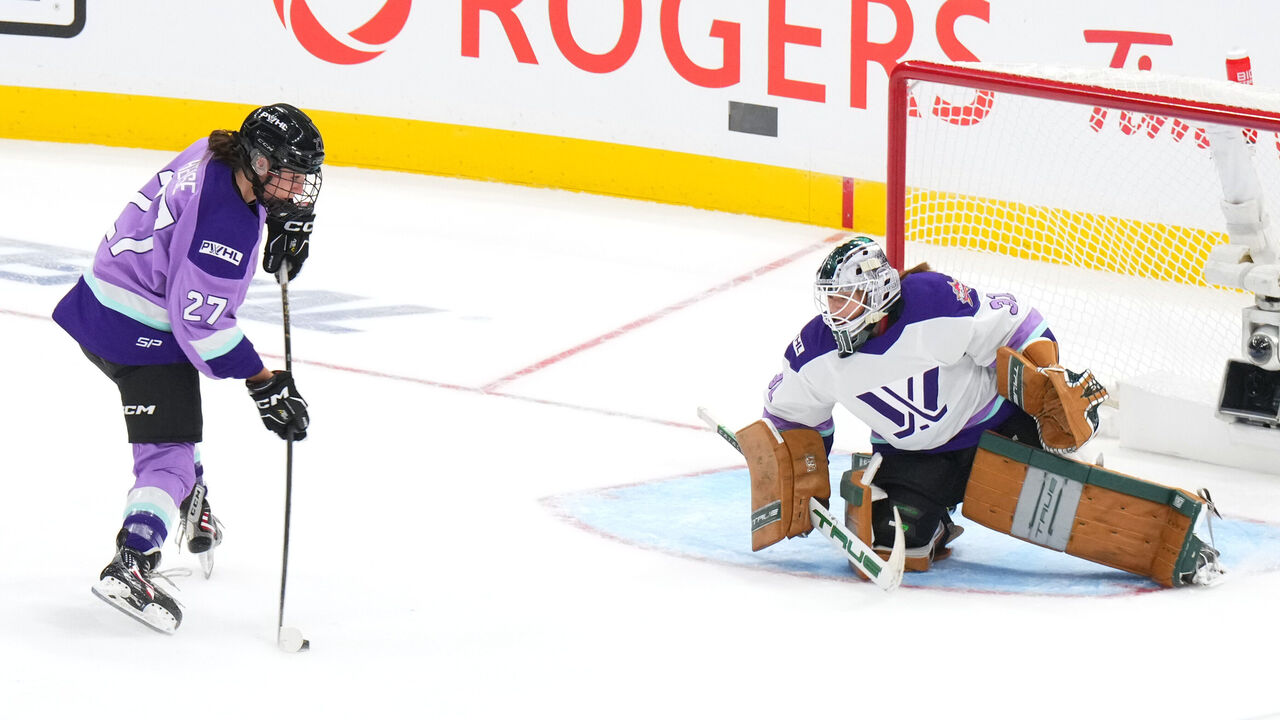How Minnesota's abundant resource - hockey players - led to its PWHL success
There were 23 jobs available in hockey for U.S. women as recently as last year, and hundreds vying to claim one. The candidates were elite players whose only career option in the sport was to make an Olympic team.
"I had the word 'Olympics' written above the light switch in my room," PWHL Minnesota's Taylor Heise says. "Every time I turned that light off and turned my light on, that'd be something that I'd think about."
If grit, dedication, and talent were the deciding factors, Heise would've made the Olympic team long ago. She fell in love with hockey in the first grade on an outdoor rink in southern Minnesota. After showing early promise as a goal-scorer, Heise became obsessive about improving. She constructed a makeshift practice facility in her parents' garage and recruited her dad and younger brothers to feed her pucks.
Heise had been named to three U.S. under-18 squads by the time she was in high school, taking home gold at three straight junior world championships from 2016-18. Then it was off to the University of Minnesota, where she won the NCAA's Patty Kazmaier Award as a senior in 2022 and led the NCAA in scoring in her fifth year.
The reward for all of that excellence?
"I was cut from Olympic residency in 2022," the 23-year-old says.
Following that, she erased the reminder above her light switch. Not knowing what else to strive for, she replaced it with the word "better." It was nebulous, but so were her options.
"I just told myself, 'You've got to better yourself every day in order to do something different or be different,'" she says. "I wanted to show people that if I wasn't picked for that, I was going to be picked for something else in the future."

Heise was picked for something else - the PWHL. She was the first overall selection in the league's inaugural draft in September. It felt historic to her, and that feeling has only been magnified in the intervening months as Minnesotans have rallied around their new hometown team. They showed up 13,000 strong for the team's home opener and have averaged about 6,800 a night in the five home games at Xcel Energy Center since.
The support has made careers like Heise's both possible and meaningful. And that fan base, coupled with superior on-ice results - Minnesota is just two points shy of first place just past the season's halfway mark - is quickly establishing the State of Hockey as one of the PWHL's early powerhouses.
The State of Hockey
Minnesota captain Kendall Coyne Schofield was exiting the ice after a game earlier this season when she saw a group of fans freaking out in front of her.
"I knew exactly who was coming off behind me," she says. "I knew it had to be Heise."
Sure enough, a teenage girl pulled out her phone and started filming.
"Oh my gosh," said the girl. "It's Taylor Heise!"
"These kids look at a lot of the Minnesotans - they grew up playing for their town, playing for their high school, played for the Gophers, and now they're playing professionally," says Coyne Schofield, who's one of the few players on the roster not from the state. "It's the dream."
For the uninitiated: Hockey in Minnesota is a way of life.
"You can't really go anywhere in Minnesota and not know the hockey players or where the nearest hockey rink is," says Minnesota Wild forward Vinni Lettieri, who also grew up in the state and played for the Golden Gophers. "That's the beauty of Minnesota. Whether you like it or not, it's one of the most important parts of Minnesota."
Dallas Stars netminder Jake Oettinger, who also grew up playing hockey in Minnesota, compared it to "football in Texas."
It's notable that PWHL teams in Montreal, Ottawa, Toronto, and Boston are dedicated to cities, and that New York's team name is ambiguous. But Minnesota's club was always strategically different.
"Just like they do in the NHL, we called it the market of Minnesota," Stan Kasten, a PWHL advisory board member, says.
And it's not just the name that reflects the state. The roster reads like a who's who of homegrown hockey talent. Twelve native Minnesotans currently play for the team, and only three of the other rostered players didn't attend a Minnesota college, play in the elite Shattuck St. Mary's boarding school program, or previously dress for a Minnesota-based pro club. It's all part of a strategy to find an identity both on and off the ice.
"Absolutely, it was intentional," says PWHL Minnesota general manager Natalie Darwitz. "I'm obviously a Minnesotan at heart, too. I know what they have to offer. I didn't hesitate at all to draft them and pick them up for free agency. Somehow, some way, all these players had a little bit of a backstory that revolves around being intertwined with Minnesota."

Darwitz believed that not only would a team with a common sense of hockey culture gel on the ice - Minnesota burst out of the gate with four wins and an overtime loss in its first five games - but that fans would also get what she was trying to do.
"Minnesota felt primed for this, like it was salivating and craving this," she says.
When the team hosted an open practice earlier this season, the subsequent autograph line was more than two hours long.
"It was pretty cool that it's not just people who are local to St. Paul," forward Kelly Pannek says. "There's people who are driving an hour and a half on their day off of school. It feels more of a statewide thing, which is exciting."
For some, the support was to be expected.
"When I saw (the PWHL team) had 13,000 fans at the Xcel, it didn't surprise me one bit," Oettinger says. "I mean, they call it the State of Hockey for a reason, and I'm just happy to see that league getting the support they deserve and the ladies getting the recognition.
"The hockey is great. These women are so talented and deserve to have a place where they can play and get paid and valued."
But not everyone counted that as a given. For Amy Heise, who watched her daughter chase the dream of playing hockey beyond college, the sheer amount of support for professional women's hockey is overwhelming.
She says she's constantly approached at the grocery store in Lake City, where the family resides, by "countless" people who have been watching PWHL games on YouTube. More than a handful have also made the 70-minute drive to attend games in person.
"Where are these people coming from?" Amy says. "I'm amazed at the following."
The fan support in Minnesota - and the entire league - has surpassed even Kasten's hopes. He likened the runaway success to the league's now-famous "jailbreak" rule, where a shorthanded goal ends a power play.
"It is fundamentally what we are," Kasten says. "We started shorthanded. And with a lot of determination and effort, we broke through - suddenly out of surprise - and marched to our goal. Our whole season has been one long short-handed goal. Our whole league is a short-handed goal. And I couldn't be happier about that."
A different shot at glory
If you start asking anyone around PWHL Minnesota who you should talk to about Heise, you'll likely be directed to one person: Grace Zumwinkle. Both women played youth hockey in Minnesota, but Zumwinkle only knew Heise by reputation.
Because Heise opted not to move away from home to play hockey at one of the state's elite boarding schools, she wasn't as ingrained in the Minnesota hockey scene as some of her competitors.
"She was never really around the metro area, so some people were like, 'Where's this girl coming from?'" Zumwinkle remembers.
"Then, her game kind of spoke for itself," she says. "If you didn't know her name, it was something that you quickly learned."
The two became fast friends and, eventually, roommates. They both traveled to Russia in 2018 to represent Team USA at the under-18 world championships and attended the University of Minnesota.
"We always say she's the black cat of the relationship, and I'm the golden retriever," Zumwinkle says.
Despite having similar backstories, their careers differed in a major way. Zumwinkle made the Olympic team that cut Heise. That's part of the reason why it's so special for Zumwinkle, who earned a silver medal in Beijing, to watch her friend shine now.
"She has done a great job with it. It's not easy coming up (as the) first overall draft pick, having all these expectations," Zumwinkle says. "She's obviously very hard on herself and wants to be the best whenever she steps on the ice."

Heise's mom isn't surprised that her daughter's work ethic has already earned her a reputation in the pros.
"That was always her mentality," she says. "She would do like a puck challenge - try to shoot 10,000 pucks. Our three-car garage never had cars in it because she turned it into a shooting arena with tarps. She crashed out I don't know how many windows. What she was doing, she was on a trajectory to be really, really good."
Heise has done a considerable job of establishing herself among the veterans of the game, recording six points in 10 games before suffering a shoulder injury. But whether on or off the ice, her energy makes her an automatic team leader.
"She's very intense," says PWHL Minnesota forward Abby Boreen, who's known Heise since they were teenagers. "She wants to give her best every shift. And you're gonna get that from her. The energy level, even in practice, and playing a game with her, is always high. She pushes others around her to be better, she's pushed me as a player to be better."

For Heise, a big part of that energy is derived from Minnesota itself. The state, the fans, the support.
"I just think Minnesota - the passion for hockey, and the background and the depth of our audience and our fans - makes games really special. The support system I have is unwavering - whether that's social media, whether that's getting letters, getting emails," she says. "It's never crossed my mind that I would ever want to go anywhere else."
That's why she doesn't have the word "Olympics" written above her light switch anymore. And she doesn't have the word "better" written, either.
Does she have anything up there now?
"I don't," Heise says. "Because I think, as of right now, I'm living the dream."
Jolene Latimer is a features writer at theScore.